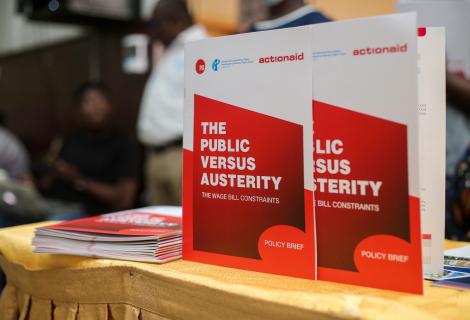
This report analyses trends in public sector wage bill in education and health sectors and
freezing/depreciation of wages, and trends of the overall public sector wage bill as a percentage of government budget/revenue/GDP. It also examines the links between Ghana’s debt servicing and public sector wage bill and how these are related to the advice of the IMF. The findings show a situation of rapid increasing public debt amidst declining GDP growth, which further points to an emerging debt crisis in Ghana. This situation has the potential to affect the provision of critical gender-responsive social services such as health, education, social protection, sanitation, and water. The fast-rising public debt and debt servicing costs have constrained government’s fiscal space to expand employment in health and education sectors. However, women, being largely the frontline workers such as teachers, nurses, midwives, doctors and other education and health workers, are being adversely impacted the more. These, coupled with the increasing women’s unpaid domestic and childcare services, are pushing women more into poverty and undermining their progress on human rights – a situation that significantly threatens the realisation of SDGs.